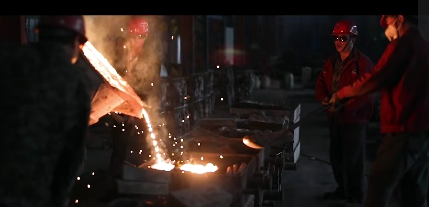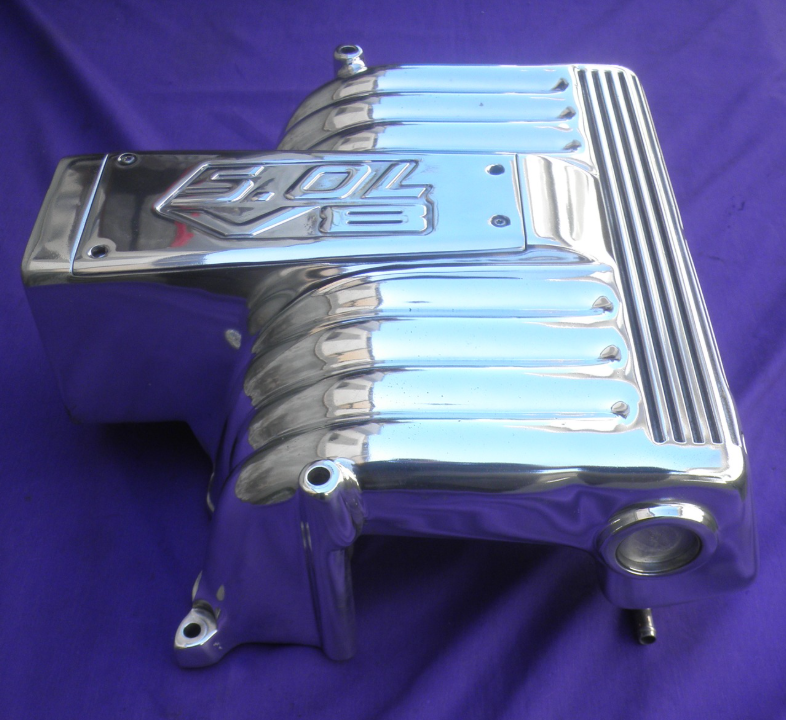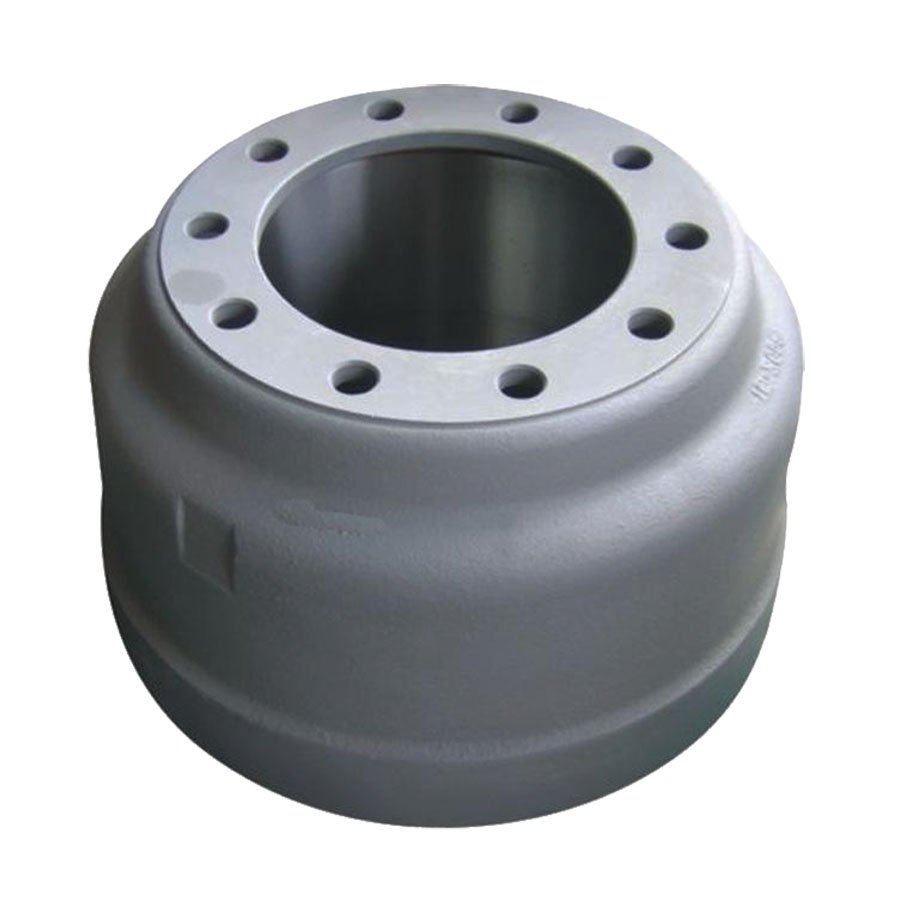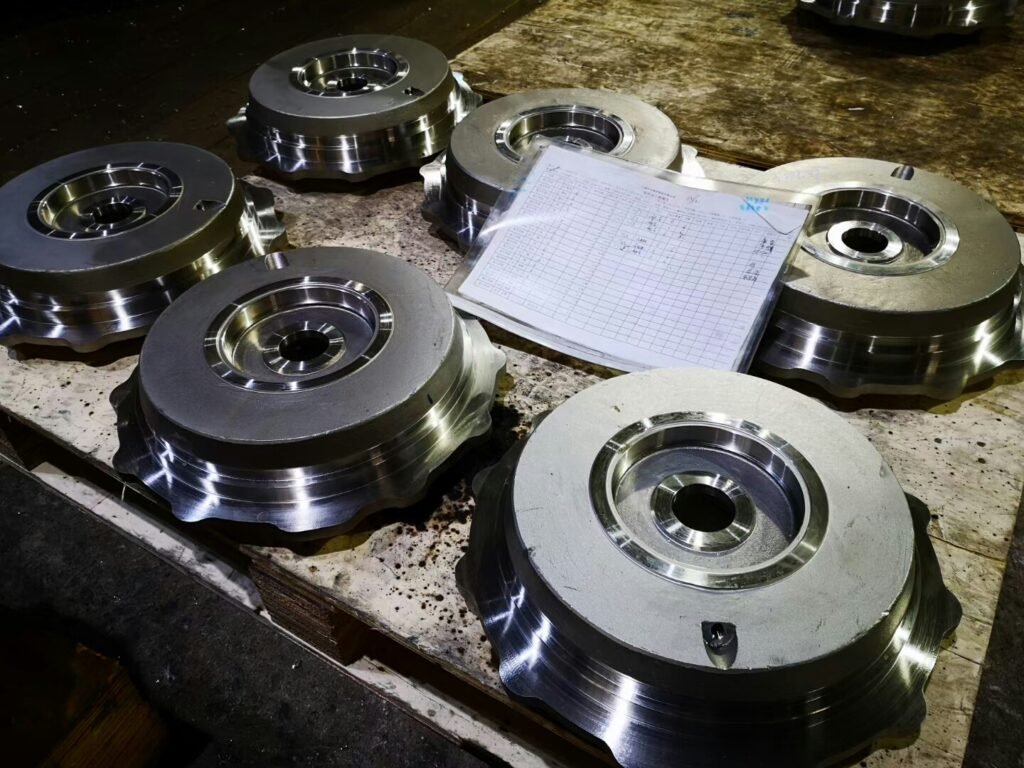You’re ready to upgrade your car with new wheels, but the endless terms—cast, flow-formed, forged—make aluminum wheel casting sound confusing and overwhelming. Every option claims to be superior, yet the wrong choice could mean more than just a style mismatch. It could waste your money on wheels that underperform, add unnecessary weight, or even compromise your safety. That’s why understanding aluminum wheel casting is essential. This guide cuts through the marketing noise, clearly explaining each method so you can confidently choose wheels that match your car, budget, and driving style.
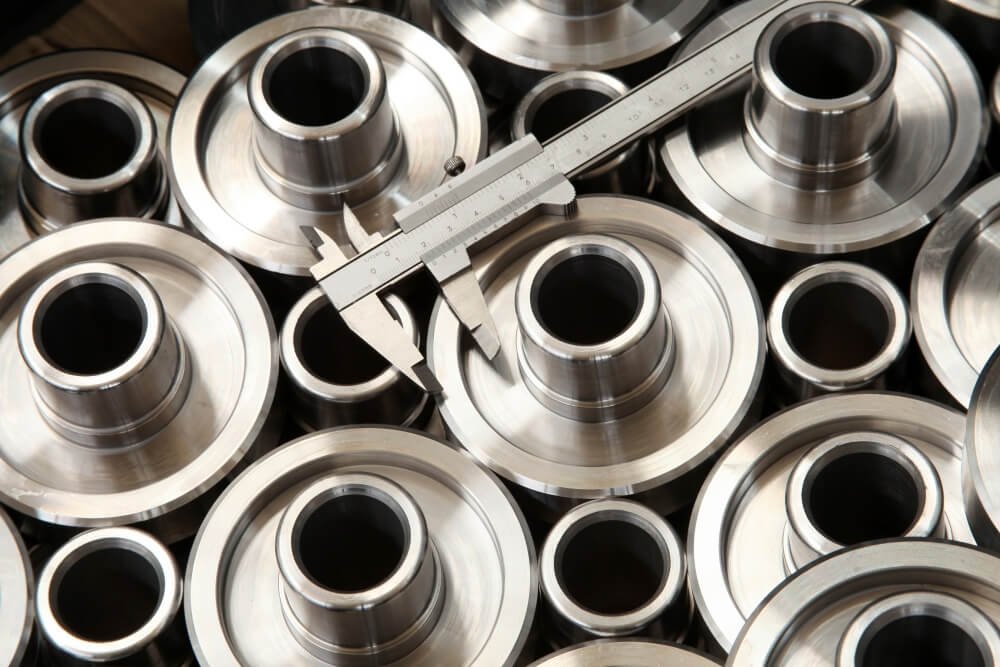
The Basics of Aluminum Wheel Casting
How is a basic wheel made?
A basic wheel is made by pouring molten aluminum alloy into a mold and letting it cool. What does this mean for you? This common process is fast and cost-effective, but the way the metal cools can determine the wheel’s final properties. After cooling, it is trimmed and drilled to finalize the shape.
Why does the process matter?
The manufacturing method directly impacts a wheel’s strength, weight, and durability. Let’s break it down. A simpler process like casting can create internal pores, while more complex methods create a denser, stronger metal structure. This difference is critical for performance and safety.
What are the three main types?
The three main wheel manufacturing methods offer different benefits for you.
- Cast: The most affordable and common type.
- Flow-Formed: A hybrid method offering improved strength and lower weight than cast.
- Forged: The premium option, providing maximum strength and minimal weight.
| Method | Key Feature |
|---|---|
| Cast | Affordability |
| Flow-Formed | Balanced Performance |
| Forged | Ultimate Strength |
These three types of aluminum wheel casting represent a clear trade-off between cost and performance.
Key Takeaway: Understanding the three core manufacturing methods—cast, flow-formed, and forged—is the first step to making an informed decision that matches your performance needs and budget.
Gravity Aluminum Wheel Casting Explained
What is a cast wheel?
A cast wheel is created by pouring liquid aluminum into a wheel-shaped mold. But here’s the catch: as the metal cools, microscopic air pockets, or porosity, can form within the material. This method is the most widespread due to its low production cost.
What are its pros and cons?
Cast wheels offer a major advantage in price, but this comes with trade-offs. Here’s the deal: they are heavier because more material is needed to ensure adequate strength, compensating for the potential porosity. This porosity also makes them more brittle and prone to cracking on impact.
- Pros: Inexpensive, wide variety of designs.
- Cons: Heavier, less durable, prone to cracking.
Who are cast wheels best for?
These wheels are ideal if you prioritize appearance and affordability for daily driving. What does this mean for you? They are a great fit for standard road cars, custom dress-ups, and situations where extreme performance isn’t the primary goal.
| Feature | Cast Wheels |
|---|---|
| Cost | Low |
| Strength | Standard |
| Best For | Daily Driving |
Gravity aluminum wheel casting provides an accessible entry point for aftermarket wheels.
Key Takeaway: Cast wheels are the most budget-friendly option, perfect for daily drivers who want to upgrade their vehicle’s style without the high cost of performance-oriented wheels.
Hybrid Aluminum Wheel Casting: Flow Form
How does flow forming work?
Flow forming starts with a cast wheel face that is placed on a machine, heated, and spun at high speed. The bottom line is, rollers apply immense pressure to stretch and compress the wheel’s barrel. This process realigns the aluminum’s grain structure, making it stronger.
Is it stronger than casting?
Yes, a flow-formed wheel is significantly stronger and lighter than a traditional cast wheel. Let’s break it down: the process increases the aluminum’s tensile strength, resulting in a denser and more durable barrel. This allows for less material to be used, reducing weight by up to 25%.
- Improved tensile strength
- Reduced overall weight
- Enhanced shock resistance
When should you choose this type?
You should choose a flow-formed wheel if you want a noticeable performance upgrade without the high price of a forged wheel. Here’s the deal: it’s the perfect middle ground for enthusiasts who engage in spirited driving or occasional track days.
| Feature | Cast | Flow-Formed |
|---|---|---|
| Strength | Standard | High |
| Weight | Heavy | Lighter |
| Cost | Low | Medium |
This hybrid aluminum wheel casting method bridges the gap between casting and forging.
Key Takeaway: Flow-formed wheels offer a fantastic balance of reduced weight, increased strength, and affordability, making them the best value for most performance enthusiasts.
Premium Aluminum Wheel Casting: Forging
How are forged wheels different?
Forged wheels are machined from a solid block of aluminum, called a billet, not poured into a mold. What does this mean for you? The billet is subjected to extreme heat and immense pressure, which compresses the metal and creates an incredibly dense and strong final product.
Why are they the strongest option?
The forging process eliminates porosity and aligns the metal’s grain structure with the wheel’s shape. But that’s not all. This creates a wheel with unparalleled structural integrity and resistance to bending or cracking under high stress.
- Highest strength-to-weight ratio
- No porosity or cavities
- Superior durability and longevity
Are forged wheels worth the high cost?
For serious racers or drivers demanding the absolute best in performance and safety, yes. The bottom line is, their superior strength and low weight provide a significant competitive advantage in handling, acceleration, and braking.
| Feature | Forged Wheels |
|---|---|
| Process | Machined from solid billet |
| Strength | Maximum |
| Weight | Lightest |
This premium aluminum wheel casting technique delivers ultimate performance for demanding applications.
Key Takeaway: Forged wheels are the pinnacle of wheel manufacturing, offering unmatched strength and the lightest weight for professional racers and no-compromise performance builds.
Strength in Aluminum Wheel Casting
Which wheel is most durable?
Forged wheels are by far the most durable option available. Let’s break it down: the high-pressure forging process creates a dense grain structure that is highly resistant to fatigue and impact. This makes them the top choice for motorsports and heavy-duty use.
How does porosity affect safety?
Porosity in cast wheels creates weak points that can lead to catastrophic failure under stress. But here’s the catch: when a cast wheel fails from an impact, it tends to crack or shatter. A forged wheel, being more ductile, is more likely to bend, which is a safer failure mode.
Which resists cracks under impact?
Forged wheels offer the greatest resistance to cracking under impact.
- Forged: Tends to bend, allowing for potential repair.
- Cast: Brittle nature makes it prone to cracking.
- Flow-Formed: Stronger barrel than cast, but the face is still a casting.
| Wheel Type | Impact Response |
|---|---|
| Cast | Prone to Cracking |
| Flow-Formed | More Resistant |
| Forged | Bends, Resists Cracking |
The integrity of aluminum wheel casting directly correlates to on-road and on-track safety.
Key Takeaway: When it comes to strength and safety, forged wheels are superior because their manufacturing process eliminates the internal defects found in cast wheels.
Weight in Aluminum Wheel Casting
Which wheel type is lightest?
Forged wheels are the lightest, followed by flow-formed, with cast wheels being the heaviest. The bottom line is, the immense strength of forged aluminum allows designers to use less material to achieve the required load rating. This reduction in mass is a key performance advantage.
How does weight affect performance?
Lighter wheels reduce unsprung mass, which has a significant impact on your car’s performance. What does this mean for you? It improves acceleration, shortens braking distances, and allows the suspension to respond more quickly for better handling and grip.
- Faster acceleration
- Improved braking efficiency
- More responsive handling
Does lighter always mean better?
While lighter is generally better for performance, strength should never be compromised. Here’s the deal: a properly engineered wheel balances low weight with a high load rating to ensure safety. The best wheel for you is the one that meets the demands of your vehicle and driving style.
| Wheel Type | Strength | Weight | Cost | Best Use Case |
|---|---|---|---|---|
| Cast | Standard | High | Low | Daily Driving |
| Flow-Formed | High | Medium | Medium | Spirited Driving / Track Days |
| Forged | Highest | Low | High | Professional Racing |
The interplay between weight and strength is a central factor in aluminum wheel casting.
Key Takeaway: Reducing wheel weight dramatically enhances vehicle performance, and forged wheels offer the best strength-to-weight ratio, providing the ultimate performance upgrade.
Cost of Aluminum Wheel Casting Methods
Which is the most affordable wheel?
Cast wheels are the most affordable option on the market. Let’s break it down: the manufacturing process is simple and allows for mass production, which keeps costs low for you. This makes them a popular choice for cosmetic upgrades on a budget.
What determines the price difference?
The price difference is driven by raw material costs, manufacturing complexity, and production time. For instance, forging requires expensive machinery, high-grade aluminum billets, and a longer, more labor-intensive process. Flow-forming sits in the middle, adding an extra step to the casting process.
- Casting: Simple mold, quick process.
- Flow-Forming: Extra machinery and time.
- Forging: Expensive billets and complex machinery.
What is the best value for money?
For most driving enthusiasts, flow-formed wheels offer the best value for the money. The bottom line is, they provide a significant performance jump over cast wheels in terms of weight and strength for a moderate price increase.
| Method | Relative Cost | Key Driver |
|---|---|---|
| Cast | $ | Simple process, high volume |
| Flow-Formed | $$ | Hybrid process, better material |
| Forged | $$$$ | Complex process, premium billet |
The investment in different aluminum wheel casting methods reflects their performance capabilities.
Key Takeaway: While cast wheels are the cheapest, flow-formed wheels provide the best balance of cost, strength, and weight, making them the smartest investment for most enthusiasts.
Decoding Aluminum Wheel Casting Terms
What does ‘Rotary Forged’ mean?
‘Rotary Forged’ is a marketing term for the flow-forming process. Here’s the deal: while the name sounds impressive, it is not a true forging process. It describes a wheel that starts as a casting and then has its barrel strengthened using rollers and pressure.
Is a ‘Flow Forged’ wheel truly forged?
No, a ‘Flow Forged’ wheel is not truly forged. Like ‘Rotary Forged’ or ‘Spun Forged,’ it’s another marketing name for flow-forming. What does this mean for you? These wheels are stronger and lighter than cast wheels but do not have the same level of strength as a wheel made from a solid forged billet.
- Rotary Forged
- Flow Forged
- Spun Forged
What is an aluminum ‘billet’?
An aluminum billet is a solid, high-quality block of metal that serves as the starting point for a forged wheel. The bottom line is, this solid piece is what differentiates a true forged wheel from cast or flow-formed alternatives.
| Marketing Term | Actual Process |
|---|---|
| Rotary Forged | Flow-Forming |
| Flow Forged | Flow-Forming |
| Spun Forged | Flow-Forming |
Misleading aluminum wheel casting terms can be confusing, but the process is what truly matters.
Key Takeaway: Don’t be misled by marketing terms; ‘Rotary Forged’ and ‘Flow Forged’ are names for flow-forming, not the true forging process that starts with a solid billet.
Your Use Case and Aluminum Wheel Casting
What is best for daily driving?
For daily driving, cast wheels are often the most practical and cost-effective choice. Here’s the deal: they offer a wide array of styles to enhance your car’s look at an affordable price point. Their strength is more than sufficient for public roads and typical driving conditions.
What is best for the race track?
For the race track, forged wheels are the undisputed champion. The bottom line is, their exceptional strength and minimal weight provide the durability and performance needed to withstand the extreme forces of racing. Flow-formed wheels are also a very capable option for amateur track days.
How do I choose the right wheel?
To choose the right wheel, you must match the manufacturing method to your primary use case.
- Daily Commuting: Cast wheels offer style on a budget.
- Spirited/Occasional Track: Flow-formed wheels provide the best value and performance.
- Competitive Racing: Forged wheels are essential for safety and a competitive edge.
| Use Case | Recommended Type | Reason |
|---|---|---|
| Daily Driving | Cast | Cost-effective, stylish |
| Track Days | Flow-Formed | Balanced performance/cost |
| Pro Racing | Forged | Maximum strength/safety |
Choosing the right aluminum wheel casting method depends entirely on your driving needs.
Key Takeaway: The right wheel for you is a personal choice based on your driving habits; select cast for daily style, flow-formed for spirited fun, and forged for ultimate racing performance.
Why Aluminum Wheel Casting Matters
What is a wheel’s load rating?
A wheel’s load rating is the maximum weight it is certified to carry safely. What does this mean for you? It’s a critical safety metric determined by your vehicle’s Gross Axle Weight Rating (GAWR). Always ensure your wheels meet or exceed your vehicle’s required load rating.
How does manufacturing affect it?
Manufacturing directly impacts how easily a wheel can achieve a high load rating. Let’s break it down: because forged aluminum is so strong, a forged wheel can meet a high load rating with less material, making it lighter. A cast wheel needs more material to achieve the same rating, making it heavier.
What are the final takeaways?
The right wheel choice ultimately depends on your specific needs and budget.
- Cast: Best for budget-conscious daily drivers.
- Flow-Formed: The ideal balance for most enthusiasts.
- Forged: The ultimate choice for serious performance and racing.
| Feature | Importance |
|---|---|
| Load Rating | Critical for Safety |
| Manufacturing | Affects Strength & Weight |
| Use Case | Determines Best Choice |
Understanding why aluminum wheel casting matters empowers you to make a safer, better choice.
Key Takeaway: Now you understand that the real difference between cast, flow-formed, and forged wheels lies in the manufacturing process, which directly impacts their strength, weight, and price. From the budget-friendly cast wheel to the ultimate performance of a forged wheel, you have the knowledge to make a confident choice.
Conclusion
Now you understand that the real difference between cast, flow-formed, and forged wheels lies in the manufacturing process, which directly impacts their strength, weight, and price. From the budget-friendly cast wheel to the ultimate performance of a forged wheel, you have the knowledge to make a confident choice.
Ready to find the perfect wheels for your ride? Explore our collection today!
We believe in empowering every driver with the knowledge to choose performance and style without compromise.
Frequently Asked Questions
Q1: Can I use forged wheels for daily driving?
A: Yes, absolutely. They provide superior strength and low weight for any scenario, but their high cost is often overkill for daily driving compared to flow-formed or cast wheels.
Q2: What’s the best value in aluminum wheel casting?
A: For most enthusiasts, flow-formed wheels offer the best value. They provide a significant strength and weight advantage over cast wheels for a moderate price increase, hitting the sweet spot between cost and performance.
Q3: How do I know if a wheel is cast or forged?
A: Price and weight are the biggest clues. A forged wheel of the same size and design will be noticeably lighter and significantly more expensive than a cast version. The manufacturer’s specifications will also clearly state the production method.
Q4: Is ‘Rotary Forged’ the same as a forged wheel?
A: No, it is not. ‘Rotary Forged,’ ‘Flow Forged,’ and similar terms are marketing names for the flow-forming process. These wheels start as a casting and are then strengthened, but they are not manufactured from a solid billet like a true forged wheel.
Q5: Why are cast wheels heavier than other types?
A: Because the casting process can create microscopic voids (porosity) in the aluminum. To compensate and ensure the wheel is strong enough, manufacturers must use more material, which increases the overall weight.


